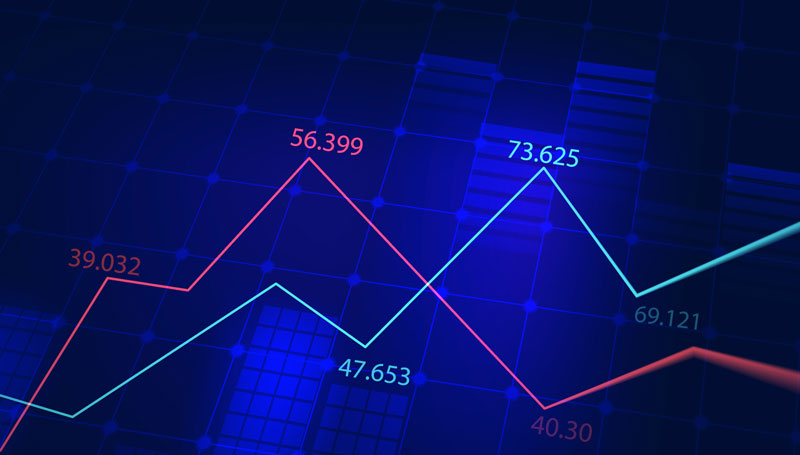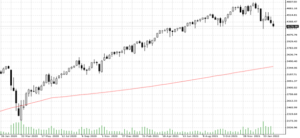

22.02.2022 – Moscow has recognised the breakaway Ukrainian republics of Lugansk and Donetsk as independent. Russian President Vladimir Putin ordered the deployment of troops to the so-called People’s Republics last night. The first tanks are said to be rolling already. Goldman Sachs and Rabobank venture a forecast of what all this means for the markets.
This is what Ukraine is facing now
Told you so: Just as we have predicted here several times, it has come to pass. Now there are several possibilities: FIRST – Russia occupies the new republics within a few days; this follows the pattern of South Ossetia and Abkhazia, where Russia stationed troops after the 2008 war against Georgia and recognised the dwarf regions as independent.

Source: Bernstein Bank GmbH
SECOND – Russia also occupies the entire south of Ukraine to draw a corridor to Moldova to the breakaway pro-Russian territory of Transnistria. This Novorossia, as the separatists would like it to be, would make up about a third of Ukraine. THIRD – the crisis will be settled diplomatically after all. We see the odds at 45-45-10 for the three scenarios.
War on – risk off
In the first two cases, depending on Ukraine’s resistance, this will trigger a violent market reaction on the short side. This is because many investors will sell off their assets for fear of a third world war. There is still room for downside: Ultimately, not much has happened on the stock market at all, as the weekly chart of the S&P 500 proves. In fact, the SPX is still far from its 200 moving average. That could become the next stop. If not the Corona low from 2020.
Here’s how Goldman sees it
Goldman Sachs has calculated the pessimistic case of war on the one hand, and the positive scenario of de-escalation on the other. The analysis was published before the stock market opened yesterday. Here are the results:
– War: The S&P 500 could still fall by around 6 per cent. De-escalation: up 5.6 per cent.
– Stoxx 600: down 9.3 per cent or up 8.4 per cent.
– Russel 2000: down 10.2 per cent; up 9.2 per cent
– Nikkei 225: down 8.6 per cent; up 7.7 per cent
– MSCI Emerging Markets: down 7.7 per cent; up 6.9 per cent.
Three Rabobank scenarios
Rabobank takes a more complicated approach to the issue of war. According to it, there are three scenarios: A – a short war. Within the next six months, trade between Europe and Russia would be massively disrupted. Oil would rise roughly as it did during the Libyan war, when Brent climbed from $90 to $125. Since a large part of the harvest would fail in Ukraine, the price of wheat would probably increase by 30 per cent, maize by 20 per cent.
B – War and effective sanctions against Russia, the occupied part of Ukraine and Belarus by the US, EU, Australia, New Zealand Japan and South Korea. Oil increases in price to 135 dollars for a longer period. Corn and barley increase by 30 percent.
C – Sanctions also against China, which has already announced that it will support Russia. With the consequence of unforeseeable price shocks around the globe.
So much for a look into the crystal ball. We add: One scenario that is not yet on anyone’s radar is the possibility that some NATO countries will support Ukraine with troops on their own – the British, the Poles or the Baltic states, for example. Then things would get really dicey. Bernstein Bank keeps an eye on the matter for you!
Important Notes on This Publication:
The content of this publication is for general information purposes only. In this context, it is neither an individual investment recommendation or advice nor an offer to purchase or sell securities or other financial products. The content in question and all the information contained therein do not in any way replace individual investor- or investment-oriented advice. No reliable forecast or indication for the future is possible with respect to any presentation or information on the present or past performance of the relevant underlying assets. All information and data presented in this publication are based on reliable sources. However, Bernstein Bank does not guarantee that the information and data contained in this publication is up-to-date, correct and complete. Securities traded on the financial markets are subject to price fluctuations. A contract for difference (CFD) is also a financial instrument with leverage effect. Against this backdrop, CFD trading involves a high risk up to the point of total loss and may not be suitable for all investors. Therefore, make sure that you have fully understood all the correlating risks. If necessary, ask for independent advice. CFDs are complex instruments and are associated with the high risk of losing money quickly because of the leverage effect. 68% of retail investor accounts lose money trading CFD with this provider. You should consider whether you understand how CFD work and whether you can afford to take the high risk of losing your money.
